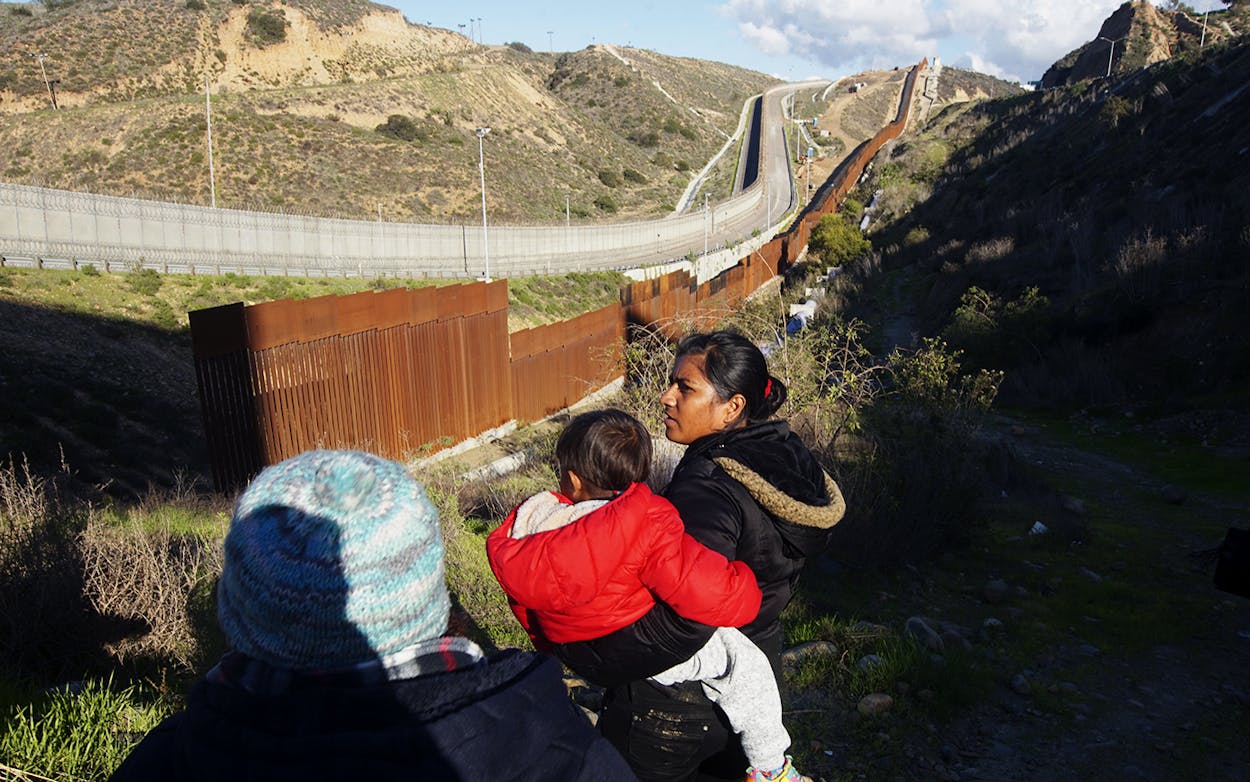The saga of the proposed border wall is one of the strangest in recent American political history. What began as a sort of mnemonic device to help Trump remember to include immigration in his speeches became a signature campaign promise. But it turned out the wall was a lower legislative priority for the president and his party than anticipated—during the two years that the GOP had complete control of the federal government, there was no serious effort to get it funded. Now that the Democrats have taken control of the House of Representatives, though, the wall took on a renewed importance, prompting our ongoing government shutdown.
Trump has spent much of the past week making his case for the wall, and on Thursday, that brought him to Texas. During his visit to the border city of McAllen, he again publicly urged the House to approve at least $5 billion in funding for the construction of a wall.
It’s not an argument that’s likely to find Trump much support among people who know the border best. One of the chief critics of Trump’s proposal is Representative Will Hurd, the Republican who represents the largest single stretch of border in the country. Hurd said on CNN this week that “building a concrete structure sea to shining sea is the most expensive and least effective way to do border security.” (Hurd did not comment on the possibility of other construction materials, like steel—a proposal the president recently floated—but it seems likely that Hurd considers the principal arguments against them to be the same.) Hurd is the sort of technocratic leader Trump was talking to when he talked about the timeless utility of things like wheels and walls—the congressman’s argument against building a wall is partially based on the existence of facial-recognition, drone, and radar technologies that make a physical barrier a “third century solution,” as he put it in a 2017 op-ed for USA Today.
Hurd’s not the only elected official who opposes Trump’s wall. State representative Poncho Nevarez, a Democrat, invoked property rights in a message to Houston Chronicle columnist Erica Grieder about why his opposition to the wall is “personal.”
https://twitter.com/EricaGrieder/status/1083422067175968769
The difference between Nevarez and Hurd’s positions on the wall, though, is mostly one of tone, rather than substance. Neither wants the wall, and they’re not alone among Texans with ties to the border on that either. “A wall is really not the effective way to protect our border,” McAllen mayor Jim Darling told the Texas Standard, citing not just a lack of results, but also the damage that building a wall does to the people who own the property it’d be constructed on. “If you’re separating your property with a wall, there’s damages to that property to the south for sure … just the inconvenience of getting there,” Darling told the radio program. “[But] the federal government does not take that into consideration.”
Meanwhile, Texans with property along the border—including clergy, ranchers, and other landowners—have been making their own cases against the wall. The opposition to the wall from Democratic leaders in Congress has often focused on the symbolism of erecting a barrier at the southern tip of our country, and on the efficacy of that barrier in actually addressing the issues of immigration. Among those on the border itself, those issues may still be relevant—but they tend to take a backseat to the preservation of people’s property rights. As Eloisa Cavazos, whose grandmother purchased more than sixty acres along the Rio Grande in the 1950s, told PBS NewsHour this week, she doesn’t want to be pushed off her land by anybody. “Everybody tells us to sell and go to a better place,” she told NewsHour. “This is heaven to us.”
- More About:
- Politics & Policy
- Border Wall
- Will Hurd








